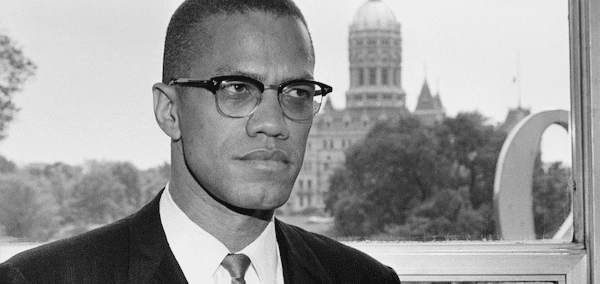With the recent celebrations of the 99th birthday of Malcolm X, the Ujima People’s Progress Party feels it is a good time to reflect on his legacy and modern-day impact.
Granted that this cannot be done complete justice in one column. Our objective here is to simply highlight a few things in his legacy that we feel contribute to his ideological lineage which in no small measure led to the forming of our party.
First and foremost, Malcolm X was a Pan Africanist and as such the unification of all people of African descent was of the utmost urgency. The primary urgent objective was then and is today to recapture the motherland home of Africa and secure her resources both economic and cultural first for the benefit of African people and then the rest of the world in need.
This was the central purpose in the forming of the Organization of African American Unity that reflected his ever-evolving Pan Africanist ideological development. It was also a model for what we seek to build today as a vehicle to bridge the African people all over the world in an effort to confront our common enemies be they people, structures or systems.
The struggle for Palestinian liberation is another area with Malcolm’s imprint then and now. In 1964 during his visit to the region Malcolm wrote a column called, “Zionist Logic” which was published in the Egyptian Gazette. In the op-ed, Malcolm exposes the glaring contradictions in the common narratives justifying the establishment of the nation we know today as Israel. The following is an example,
These Israeli Zionists religiously believe their Jewish God has chosen them to replace the outdated European colonialism with a new form of colonialism, so well disguised that it will enable them to deceive the African masses into submitting willingly to their “divine” authority and guidance, without the African masses being aware that they are still colonized.
Even in 1964, Malcolm saw the Zionist entity for what it was then and what it is today: merely another form of colonialism, settler to be precise, that uses selective biblical interpretation to justify the displacement of the Palestinian people.
It is using that same justification today to trivialize the slaughter of those same people.
He went on to point out that the Moors from Northern Africa were in the Iberian Peninsula for hundreds of years. Would they then have a legal right to claim Spain or Portugal?
His analysis was crystal clear then and remains so today.
Domestically, Malcolm recognized that neither the Democratic or Republican party could ever truly represent the aspirations of the masses of African people in the United States. This was at a time when the Black vote would make a historical shift to become decidedly Democratic due to the Republican Party’s refusal to support the Civil Rights Act of 1964. It has remained 80 plus percent in the Democratic Party ever since. In spite of the crowd going one way, Malcolm was clear that we needed to go another way. And that way was that of Pan Africanism.
His analysis was crystal clear then and remains relevant today.
Another lasting conclusion of Malcolm was, “Show me a capitalist and I’ll show you a blood sucker!” Again, correct then and correct now and all the appeals for Black capitalism will not change that reality.
One would be hard pressed to cite a Pan Africanist or Black Nationalist organization today that does not trace its roots and ideological leanings to Malcolm X. This is no small feat given the spits between the two.
Part of his impact on everyday working Black people can be attributed to his ideological roots which were greatly influenced by the Marcus Garvey movement which was the largest of its kind in the world at the time and appealed largely to working class Black people. Another factor was his time incarcerated which all too many of our people can relate to with the modern criminal industrial complex. From George Jackson to Mumia Abu Jamal, Malcolm was the model for true revolutionary rehabilitation while in the belly of the beast.
Among the many fascinating things about Malcolm X has been his capacity to literally become more impactful in death than he was while alive. That is to say as powerful and impactful as he was, the case can be made that his ideological development still had room for growth. That will surely be reflected next year when celebrations of his 100th birthday will occur in earnest.
The late great actor and Malcolm’s eulogist Ozzie Davis concluded his eulogy with these words,
And we will know him then for what he was and is—a Prince—our own black shining Prince!—who didn’t hesitate to die, because he loved us so.
Davis was right about Malcolm then and it is accurate today.
Note: The Ujima People’s Progress Party thanks Professor Peter Bailey, who was an assistant to Malcolm X and who contributed to this essay.
The Maryland UJIMA People’s Progress Party (UPP) is a black worker-led independent political action party that seeks to address the economic, political, and social oppression and exploitation confronting oppressed black and working-class people in Maryland.

